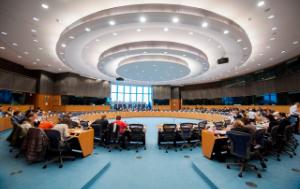Amire érdemes odafigyelni…
30 June - 3 July: Committees and Political Groups
In the week of 30 June, Members' work is split between meetings in Parliamentary Committees and political groups. During this week, a Committee on Development will send a delegation to the 4th Financing for Development Conference (FfD4) in Seville to exchange views with stakeholders and support reforms of the international financial architecture. Meanwhile, the Committee on Agriculture and Rural Development will discuss draft reports on the livestock and wine sectors, focusing on a sustainable future for the EU livestock sector and on structural support measures in the wine sector. Follow the links below to discover this week's highlights.

The European Parliament’s calendar for 2025 is available through the link below. Parliament decides its annual calendar of work on the basis of a proposal by the Conference of Presidents. It is divided into plenary sittings (part-sessions) and meetings.

The Fact Sheets on the EU provide an overview of European integration and of Parliament's contribution to that process. They present a brief summary of the EU's institutions and policies, and of Parliament's role in their development. Available in 24 languages, they cover five main areas: how the EU works; economy, science and quality of life; cohesion, growth and jobs; fundamental rights, security and justice; and the EU's external relations. The online version is updated regularly.

Parliament's committees deal with EU legislative proposals by adopting reports, which then are referred to plenary for voting by all Members, and appoint negotiation teams to conduct talks with Council. They adopt non-legislative reports, organise hearings with experts and scrutinise other EU bodies and institutions. Parliament can set up sub-committees and special committees to deal with specific issues. Each committee elects a chair and up to four vice-chairs for a two and a half year mandate.
